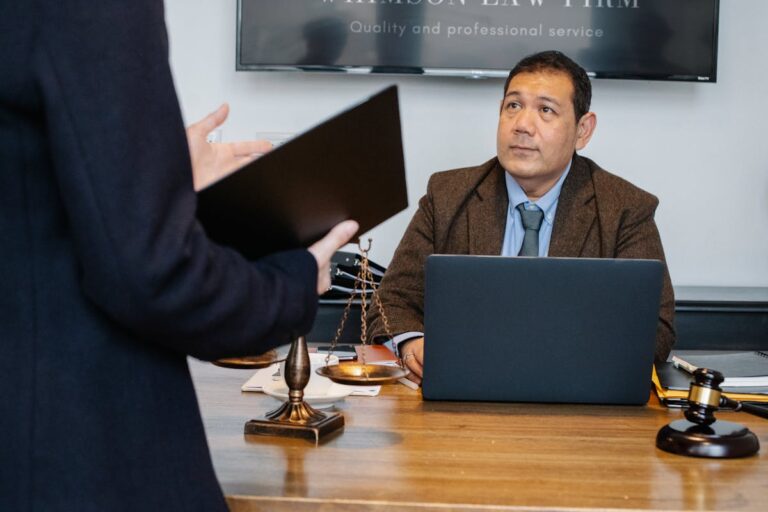Navigating the intricacies of enforcing arbitration awards in New York City requires a deep understanding of both the Federal Arbitration Act and pertinent New York state laws. With potential hurdles such as jurisdictional issues, debtor resistance, and asset scarcity, the path to successful enforcement is often far from straightforward. Strategies such as obtaining court confirmation of awards, exploiting the nuances of the award, and leveraging legal remedies could be crucial in this endeavor. However, the question remains: What are the most effective practices for ensuring that arbitration awards are efficiently enforced in NYC?
Understanding Arbitration Awards
In the domain of dispute resolution, arbitration awards play a pivotal role. They are the end result of the arbitration process, a culmination of careful deliberation and decision-making by the appointed arbitrator(s). These awards, once issued, must be enforced, and therein lies an element of complexity. The enforcement methods for arbitration awards can vary significantly, depending on the jurisdiction and the nature of the dispute.
In the context of NYC arbitration, the enforcement of awards often presents its own set of unique legal challenges. It is not enough to simply win an arbitration award; the victorious party must also navigate the legal landscape to ensure that the award is duly recognized and enforced. This can involve a complex mix of local, state, and federal laws, all of which must be meticulously navigated to secure the successful enforcement of the arbitration award.
The importance of understanding arbitration awards, and the enforcement methods associated with them, cannot be overstated. It is a critical component of the arbitration process, and a key factor in making sure that the dispute resolution mechanism operates as intended. Thus, a thorough comprehension of these aspects is essential for any party involved in a NYC arbitration.
Importance of Arbitration in NYC
A significant majority of business disputes in New York City are resolved through arbitration. This is not just a reflection but a confirmation of the value this method of dispute resolution brings to the business environment. The importance of arbitration in NYC cannot be overstated.
Arbitration benefits are numerous and widely acknowledged. It provides a quicker, more effective means of resolving disputes, which is crucial in a city where time is money. It also offers a level of adaptability not found in traditional litigation, allowing parties to customize the process to their specific requirements. This can lead to substantial cost savings, especially for businesses involved in intricate or high-stakes transactions.
NYC, as a global financial hub, has unique advantages that make arbitration even more appealing. Its strong, business-friendly legal environment nurtures trust and predictability. Furthermore, NYC’s diverse, sophisticated pool of arbitrators brings extensive industry knowledge and expertise, enhancing the quality of arbitration proceedings and outcomes.
Legal Framework for Arbitration
The legal framework for arbitration in NYC is a critical aspect to comprehend in order to effectively enforce arbitration awards. It necessitates a thorough understanding of the pertinent laws and the procedural intricacies involved. Additionally, awareness of the potential challenges in enforcement can equip parties with the right strategies to overcome hurdles, thereby ensuring the successful implementation of arbitration decisions.
Understanding Arbitration Laws
Traversing the maze of arbitration laws in NYC demands a deep understanding of its intricate legal framework. The arbitration process in NYC is guided by specific laws and rules that determine its execution, from inception to award enforcement. These laws present both opportunities and challenges for businesses and individuals involved in disputes.
- The Federal Arbitration Act (FAA) and New York State laws govern the arbitration process in NYC. They provide the blueprint for conducting arbitrations, including the selection of arbitrators, the hearing procedures, and the issuance of awards.
- The FAA preempts conflicting state laws, thereby ensuring a uniform arbitration process across all states, including NYC. This preemption, however, does not eliminate the challenges of award enforcement.
- Award enforcement in NYC can be complicated by issues such as jurisdictional disputes, arbitrator misconduct, and public policy considerations. These challenges necessitate the need for expert legal counsel in navigating the arbitration process.
- Lastly, NYC’s arbitration laws support confidentiality, delivering another layer of protection to its participants. This commitment to confidentiality can facilitate more open discussions and encourage dispute resolution.
Understanding these arbitration laws is essential for successful traversal of the arbitration process and overcoming award enforcement challenges.
Enforcing Arbitration Awards
Traversing through the intricacies of enforcing arbitration awards in NYC demands a skillful comprehension of the city’s legal framework. NYC’s court procedures provide a structured path towards the enforcement of arbitration awards, with its own set of challenges and rewards.
Enforcement strategies in NYC hinge on the recognition and enforcement of awards, which is primarily regulated by the New York Convention and the Federal Arbitration Act. These statutes guarantee that awards, once confirmed by the court, have the same effect as any other court judgment. They also provide for a limited set of defenses against enforcement, all designed to balance the interests of the parties and the efficiency of arbitration as a dispute resolution method.
Court procedures for enforcing arbitration awards in NYC typically begin with a petition to confirm the award. Parties must file this petition within one year of the award issuance. If the opposing party does not timely raise a defense, the court can confirm the award as a judgment. Once the award is confirmed, the prevailing party can utilize various enforcement mechanisms, such as property liens or garnishments, to collect the award.
Understanding and effectively ensuring these enforcement strategies in NYC is critical for the successful realization of arbitration awards.
Challenges in Arbitration Enforcement
Traversing the legal maze of arbitration enforcement in NYC can present formidable challenges. From the interpretation of the arbitration award to the enforcement strategies employed, the path to successful execution is often fraught with obstacles.
- Interpretation of the award: The first hurdle to enforcement often lies in the interpretation of the arbitration award itself. Discrepancies in understanding can lead to delays, disputes, and even the invalidation of the award.
- Jurisdictional issues: As NYC is a hub for international business, cross-border issues frequently arise. This might include the qualifications of foreign arbitrators and the enforceability of the award in other jurisdictions.
- Enforcement strategies: Choosing the most effective enforcement strategy can be complex. Strategies may vary depending on the nature of the award, the parties involved, and the jurisdictions in play.
- Obstacles faced: These may include resistance from the party against whom enforcement is sought, lack of assets to satisfy the award, and potential legal loopholes exploited by savvy legal teams.
The path to successful arbitration enforcement in NYC is a challenging one, but with the right legal advice and a well-planned strategy, these obstacles can be overcome.
Procedure for Enforcing Awards
The process of enforcing arbitration awards in New York City is a task that requires a deep understanding of the legal landscape. The arbitration enforcement process begins with a party seeking confirmation of the award from a state or federal court. This step is crucial as the court’s confirmation lends the award the same effect as a judgement, providing the victorious party with legal remedies for enforcement.
Award confirmation requirements in New York are governed by the Civil Practice Law and Rules (CPLR). The party petitioning for confirmation must file a notice of petition and a petition within one year of the award issuance. The petition must include the arbitration agreement and the award, proving the validity of both. Once served, the opposing party has a limited time to object.
Once the court confirms the award, it may be enforced like any other judgement. This includes remedies such as garnishment of wages or levying property. It’s noteworthy that these steps can be intricate and time-consuming, therefore professional legal guidance is often recommended to navigate this process efficiently and successfully.
Common Hurdles in Enforcement
Navigating the enforcement of arbitration awards in New York City is not without its challenges. It is crucial to comprehend the potential obstacles that may arise during enforcement, from understanding the intricacies of jurisdictional issues to mastering the complexities of the city’s legal framework. This analysis will provide a roadmap to overcoming these hurdles, positioning your understanding of the enforcement process at an advantage.
Understanding Enforcement Obstacles
A significant number of arbitration award holders may find themselves facing an array of obstacles when trying to enforce these decisions in New York City. These obstacles often necessitate the deployment of well-thought-out enforcement strategies and, at times, court intervention.
- Resistance from the Debtor: One of the most common obstacles is the debtor’s unwillingness to pay, which can lead to delays and increased costs for the award holder.
- Lack of Assets: If the debtor lacks sufficient assets to cover the award, enforcement becomes a futile exercise. This necessitates the need for a rigorous asset check before pursuing enforcement strategies.
- Bankruptcy of the Debtor: If the debtor files for bankruptcy, the enforcement process can become more complex, requiring court intervention and potential negotiations with other creditors.
- Inadequate Enforcement Mechanisms: The legal framework for enforcement may not be robust enough to compel compliance, particularly in cases involving international arbitration awards.
Jurisdictional Challenges in NYC
Beyond the mentioned obstacles, award holders grapple with another layer of challenges, particularly jurisdictional hurdles that are unique to New York City’s complex legal landscape. These jurisdictional issues can often pose as formidable barriers to the successful enforcement of arbitration awards, requiring adept legal strategies to navigate.
Such jurisdictional challenges primarily arise from ambiguities in determining the appropriate court with authority over the dispute. Additionally, the international character of many arbitrations in New York City adds another layer of complexity, with parties often needing to address differing laws and regulations.
Moreover, procedural hurdles intensify the difficulties in arbitral award enforcement. These include stringent timeframes for filing enforcement motions, specific service requirements, and mandatory disclosures. Such procedural intricacies can easily derail an enforcement attempt if not meticulously followed. Effective enforcement tactics must be developed to overcome these hurdles.
Navigating NYC’s Legal Framework
In the labyrinthine legal landscape of New York City, enforcing arbitration awards can often feel akin to maneuvering through a minefield. The enforcement process is replete with intricate court procedures, legal technicalities, and jurisdictional nuances. Overcoming these common hurdles requires a thorough understanding of NYC’s legal framework.
- The first hurdle in the enforcement process is the recognition of the arbitral award. The NYC court will only enforce awards that it recognizes as valid under the New York Convention or the Federal Arbitration Act.
- The second hurdle involves the court procedures. It is pivotal to file the petition for confirmation correctly and within the prescribed time limit. Errors can lead to delays or even dismissal of the enforcement petition.
- Third, the party against whom enforcement is sought may challenge the award. Common grounds for challenge include allegations of public policy violation, or procedural unfairness.
- Finally, enforcing the judgment may prove challenging. The debtor’s assets must be located, and appropriate legal steps taken to secure them.
In this complex process, it is essential to navigate NYC’s legal framework adroitly, ensuring that each step is handled with precision and tact.
Time Limit for Enforcing Awards
Understanding the time limit for enforcing arbitration awards is essential to the process of arbitration in New York City. The statute of limitations, which governs the time frame for enforcement, is a fundamental aspect to be aware of in this process.
In NYC, the enforcement process must be initiated within one year from the date of the award, according to the statute of limitations. This is a strict time frame, and the courts rarely grant extensions. Failure to adhere to this time limit can result in the loss of the right to enforce the award, regardless of its legitimacy or value.
Moreover, it is also important to understand the filing deadlines within this one-year period. The legal requirements demand that all necessary documents must be correctly completed and filed within this time frame. Proper timing and thoroughness in document submission can greatly influence the success of the enforcement process.
Role of NYC Courts
Given the complexity of arbitration enforcement, the role of New York City courts is pivotal. The NYC court process and enforcement strategies must be meticulously navigated to ensure the successful execution of an arbitration award.
- To start with, the NYC courts play an essential role in translating arbitration awards into judgments that can be enforced legally. The court examines the legitimacy of the arbitration award and, if deemed valid, converts it into a judicial order.
- In the next place, the courts also ascertain if there have been any procedural irregularities in the arbitration process. This is to make certain that the enforcement of the arbitration award does not violate the principles of justice.
- Finally, the NYC courts have the power to stay enforcement if there is an ongoing challenge to the arbitration award. This often happens if the losing party has initiated proceedings to set aside the award.
- To conclude, the courts provide a necessary check to prevent the abuse of the arbitration process. They can refuse enforcement if the award is contrary to public policy or obtained through fraud or corruption.
International Arbitration Awards
When it comes to dealing with international arbitration awards, the landscape becomes increasingly complex. The efficacy of cross border enforcement hinges on the interplay of international treaties and domestic laws, demanding a discerning approach.
The New York Convention of 1958 forms the backbone of international arbitration enforcement. With its ratification by over 160 countries, it facilitates recognition and enforcement of foreign arbitration awards. However, the Convention’s application is not without hurdles. Countries often have unique interpretations and practical applications of the treaty, leading to inconsistencies in enforcement.
Diplomatic challenges also arise. While the Convention aims to reduce the parochialism of national courts, the reality can be quite different. Foreign judgments may face resistance due to political considerations, protectionist policies, or merely the unfamiliarity of the local court with international arbitration norms.
Navigating these complexities demands a deep understanding of not only the substantive and procedural aspects of arbitration law, but also the geopolitics influencing international legal enforcement. As arbitral awards continue to gain popularity as a dispute resolution mechanism, the need for effective, predictable, and consistent enforcement mechanisms will only grow. It is incumbent upon stakeholders in NYC and beyond to ensure this becomes a reality.
Legal Remedies Available
In the field of arbitration, legal remedies serve as an essential tool for the enforcement of awards. These remedies provide a structured pathway to make sure that all parties abide by the arbitral decision. They form an integral part of enforcement strategies, reinforcing their credibility and effectiveness.
- Monetary Damages: The most common legal remedy in arbitration is the award of monetary damages. This includes actual damages, consequential damages, and sometimes punitive damages.
- Injunctions: A court can issue an injunction to prevent a party from continuing an action that violates the arbitration agreement.
- Specific Performance: This remedy mandates the party in breach to perform specific actions as specified in the arbitration award.
- Declaratory Judgments: A declaratory judgment provides a legal determination of a party’s rights, duties, or obligations under the arbitration agreement.
Legal remedies are not just punitive measures, but also serve as preventive mechanisms. By providing a clear-cut consequence for non-compliance, they deter potential breaches. Hence, they play an essential role in the overall enforcement strategy, enhancing the efficacy and integrity of arbitration in NYC. The selection of an appropriate remedy is dependent on the nature of the dispute and the particulars of the arbitration agreement.
Tips for Successful Enforcement
Traversing the maze of arbitration enforcement can be challenging, even for seasoned legal practitioners. Understanding best practices and learning from relevant case studies can be invaluable tools for success.
Firstly, having a clear understanding of the arbitral award is essential. Thoroughly analyzing and discerning the arbitrator’s language will help predict potential challenges and set the stage for efficient enforcement.
Secondly, the timing of enforcement actions is crucial. Premature or delayed actions can result in unfavorable outcomes. It is wise to quickly initiate enforcement proceedings once an award is final and binding.
Thirdly, maintaining a strong communication line with the other party can greatly facilitate the process. It helps to manage expectations, diffuse tensions, and expedite enforcement.
Case studies consistently illustrate the importance of these practices. For instance, in an arbitration case concerning a real estate dispute in NYC, timely initiation of enforcement proceedings and clear communication with the opposing party resulted in successful enforcement of the award.
Lastly, seeking legal advice is always advantageous. Experienced professionals can navigate the complexities of the process, ensuring that all procedural requirements are met, and the best possible result is achieved.
Frequently Asked Questions
What Are Some Examples of Arbitration Cases in Nyc?
High profile cases of arbitration in NYC include disputes in the finance sector, construction industry, and labor unions. These instances often present unique legal challenges, testing the robustness of the city’s arbitration enforcement mechanisms.
How Much Does It Cost to Enforce an Arbitration Award in Nyc?
The cost to enforce an arbitration award in NYC varies greatly. It includes court filing fees, attorney’s charges, and potential appeal costs. A detailed cost breakdown should be obtained from your legal representative for accuracy.
Can an Arbitration Award Be Appealed in NYC Courts?
Yes, an arbitration award can be appealed in NYC courts, however, the jurisdiction of these courts and the arbitration process itself have limitations on grounds and circumstances for such appeals, ensuring the finality of awards.
What Is the Role of an Arbitrator in the Enforcement Process?
An arbitrator’s role in the enforcement process is primarily adjudicative. They determine the rights and obligations of parties according to legal standards but typically do not enforce the awards; that’s usually the responsibility of courts.
Are There Any Online Resources or Platforms for Arbitration in Nyc?
Yes, there are online platforms and resources for arbitration in NYC. These include the American Arbitration Association, JAMS, and the New York State Unified Court System’s online services, all offering extensive arbitration information and assistance.







